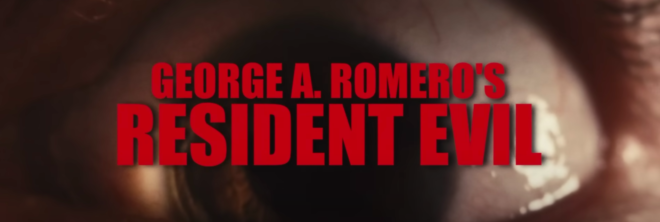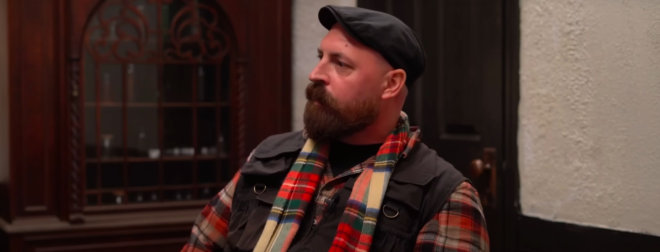Entrevistas
Interviewing Brandon Salisbury (original version – ENG)
Este artículo contiene la versión inglesa de la entrevista al director del documental Romero’s Resident Evil.

Guido Negretti: What led you to shooting a documentary about Romero’s Resident Evil?
Brandon Salisbury : I was inspired by George Romero to pursue filmmaking. And the Resident Evil games and by extension, the announcement he was hired to make the movie, took me on a journey of rediscovering his films back in 1998. Even more enjoyable than his works were the countless interviews where his insight on the filmmaking process, and his friendly demeanor, stirred in me the desire to pursue filmmaking as a career. I had always enjoyed his screenplay for the unmade Resident Evil, mostly for its dark tone and unique spin on the essence of what made Resident Evil the horror juggernaut it is today. When George passed, I wanted to honor his memory. And after years of never following through on my dream, I decided to take the plunge into film.
G. N.: Can you walk us through your process? How did the idea come to you and how did you develop it until it became a full documentary?
B. S.: Much of the work is based on an article written by Robbie McGregor, who served as co-writer on the documentary. I have known of Robbie since back in the Biohazard Extreme days (an old, defunct fansite for Resident Evil from 2000) and had helped recover some info on the McElroy draft for an indepth article he wrote covering the development and production of the original Resident Evil film. We decided to combine our efforts and spent months tracking down all sorts of pieces of background info, interviews and more, some from defunct websites. A lot of the interviews were right time, right place; meeting various community members and fans that kept pushing us in various directions to interviews all sorts of people.

G. N.: Compared to the movies that were actually produced, would you say Romero’s vision would have been “better”, cinematically?
B. S.: I would say that Romero’s version would have been different. I think it’s almost criminal that it is judged poorly based on a rough first draft that would have naturally evolved through the development process. His scripts for Day of the Dead changed many times until it became the final film. There is no way to properly know what the final film could have been, though the screenplays give an idea of the tone and spirit of the games that George sorely wanted to keep. This would have been a horror film.
G. N.: Why do you think Romero’s footprint on the genre and the history of cinema was and is so strong? What made (and still makes) Romero’s movies so outstanding?
B. S.: First, George didn’t just create the modern interpretation of the zombie. He helped create and usher in the modern horror film. The work of Romero, Russo, the Streiners, and Image Ten created an unsettling and apocalyptic vision of Hell with the original Night of the Living Dead. Beyond that, George was known as a pleasant person to meet. More than just signing autographs, everyone that has met him talks of how he took the time to actually engage with his fans. He truly appreciated them.
G. N.: Do you think Romero’s movies still have a future? Will the new generations keep watching them, or are the films going to fade away, remembered by just a bunch of nostalgics?
B. S.: His films still continue to resonate with audiences because they’re more than just the subject matter. They always tried to handle big subjects that transcended their limited budgets. It was never just a zombie film. His films are preserved in the National Archives. His written works secure at the University of Pittsburgh. He has an annual convention dedicated to his life and films, with people from all around the world traveling to Pittsburgh to honor the man. He is adored by legions of fans worldwide. For many, George’s films were (and continue to be) their inspiration that made them say, «I can do this, too!» I would like to think that his films, if not the man himself, will be well remembered long after we’ve all made our way through this world. So long as we keep his memory alive, Romero lives. We are his living legacy.

